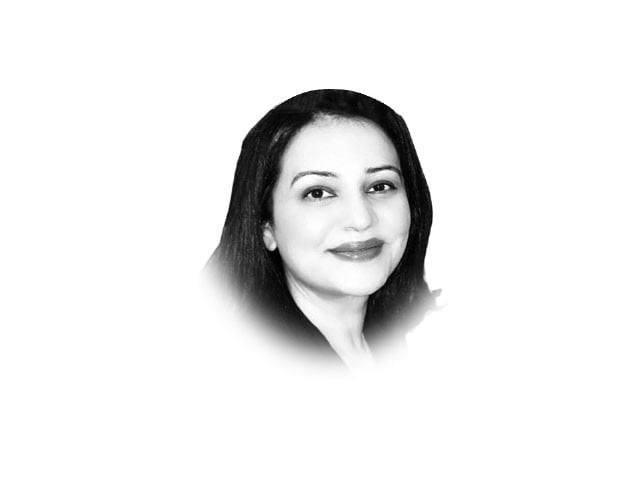End of euphoria?
Political smiles and cultural MoUs cannot scrub intergenerational trauma

Dhaka hosted Dar, Pakistan's Deputy Prime Minister, Foreign Minister and Senator, on his recent two-day official (not bilateral) visit to Bangladesh. Warm handshakes, official photographs, talk of opening hearts, and even visa-free travel for diplomatic passport holders dominated current affairs shows on Pakistani TV channels and social media. For opportunistic and impatient commentators, a "paradigm shift" had also occurred after thirteen years of dormancy.
On paper, it seemed like the genesis of a new epoch. Six star-studded Memorandums of Understanding, a cultural exchange programme, promises of trade facilitation, joint think-tank work and the launch of the so-called "Pakistan-Bangladesh Knowledge Corridor" offering 500 scholarships, a quarter of them in medicine, are being hailed as "very productive" and "landmark" by both governments.
What is missing? Is this all so genuine? Where are human reckoning and empathy? Can the media, civil society and civil bureaucracy develop the capacity to see the longstanding wound that lies beneath this jubilant façade? Has any fearless analyst looked at the discordance: diplomatic declarations flourish, but unsolved human suffering worsens.
The "stranded Pakistanis" — rather, the stateless people, some of whom have endured statelessness for over five decades — are yet to see the light of acknowledgment, let alone restitution. Is this what we call progress? Or does it imply that some are more equal than the others?
In the joint statement, Bangladesh did not fail to list the uneasy and unanswered questions: the genocide of 1971, the division of assets, cyclone aid from 1970, and the still-unresolved repatriation of "stranded Pakistanis". For Dhaka, the demand for a formal apology remains essential to building trust. Senator Dar, however, twice insisted that "all issues were resolved long ago" — a stance that left Bangladeshi officials unimpressed. The contradictions could not be clearer: warm rhetoric at the top, cold conflict beneath. Bangladesh's Foreign Ministry has skillfully involved the international community by recapping the "historic issues". In fact, Bangladeshi officials expressed frustration with Dar's insistence that these issues were settled twice, dismissing their demand for a formal apology.
I wish he had gone there with some preparation and spine. Had that been the case, he could have demanded an apology for the unacknowledged genocide of civilians from West Pakistan, families of army officers and pro-Pakistan non-Bengali Urdu speakers, largely from the Bihari community. He could have presented a strong, convincing case if this history had not been erased, if one-sided propaganda had not been promoted over the decades, and if Foreign Office appointments were based more on merit than on quotas that often overlook competence.
I am not against affirmative action for the disadvantaged, but quotas here mostly favour the privileged. He could have asked to set up joint working groups with timelines for repatriation, legal recognition, reparations and medical aid; provide NADRA services and consular help where the stateless live; convene parliamentary hearings where survivors, especially women, and historians testify; and build scholarships that not only celebrate trade and technology but also uphold memory and justice.
More than 19,000 days have passed since pro-Pakistan Urdu-speaking families in Bangladesh were abandoned to statelessness. Geneva Camp in Dhaka is not a metaphor but a physical reminder of the betrayal — generations of children born without citizenship, their lives compressed into alleys of humiliation. They loved Pakistan unconditionally and received neglect in return. Their stories — murders, assaults, erasures — are missing from the glossy communiqués.
If this moment in Dhaka was meant to be more than a round of mutual back-patting, then leaders must have stepped out of palatial rooms and walked into Geneva Camp, which inhabits the largest population of the shunned, estimated at 100,000 to 150,000. They would have looked into the eyes of those who have lived a half-century in limbo in eight-by-eight foot ghettos under inhumane conditions.
Political smiles and cultural MoUs cannot scrub intergenerational trauma. Euphoria without empathy is spin. History is not reshaped by hashtags, tweets or headlines; it is healed when silenced people are finally heard with empathy.
Senator Dar, you said in Dhaka, "Our hearts are open and our intent is most sincere." You should then have proven it. You should have opened your itinerary to those who have been written out of it for more than fifty years. Sincerity is not measured in the number of MoUs signed but in the courage to say the words "we are sorry" and the vision to repair what was broken. You should have asked Touhid Hossain and the Bangla press some tough but fact-based questions too, in the light of Islamic teachings. For instance, how fair is it to rape and kill women and girls from the non-Bengali community if Mukti Bahini were angry with the elites of West Pakistan? Or why destroy businesses and confiscate properties of people who did not side with the separatists?
Diplomacy without humanity is theatre. And theatre without truth is propaganda. Unless Pakistan and Bangladesh confront the ghosts of 1971 honestly and compassionately, this "end of estrangement" will be little more than the beginning of another illusion.
History does not vanish with a press release, but the press release has definitely evaporated the euphoria that emerged in Pakistan after the ouster of Sheikh Hasina Wajid on 5 August 2024.
We have been amputated, and the phantom pain will remain. This is neither a naïve narration nor a sermon. This is the lived experience of a stakeholder and a plea.
















COMMENTS (1)
Comments are moderated and generally will be posted if they are on-topic and not abusive.
For more information, please see our Comments FAQ